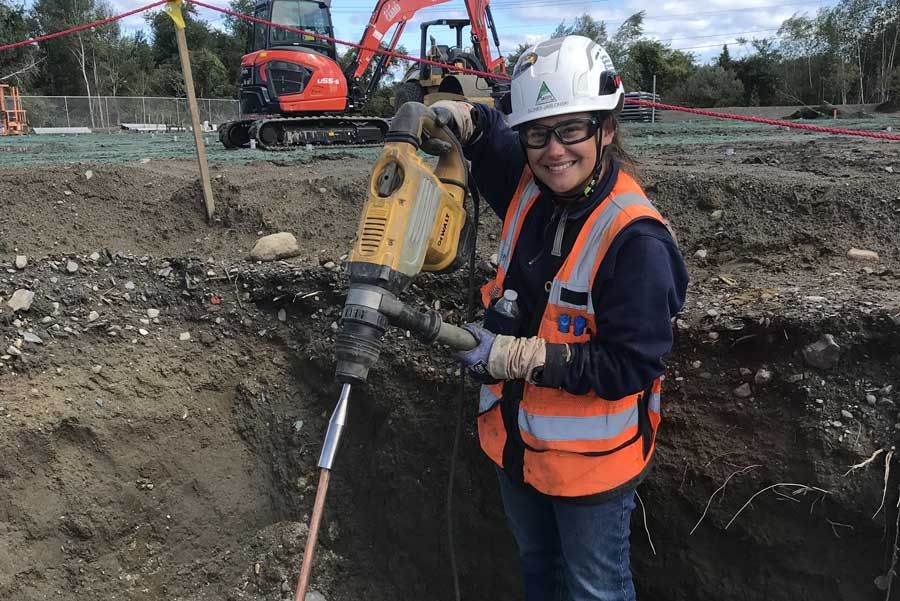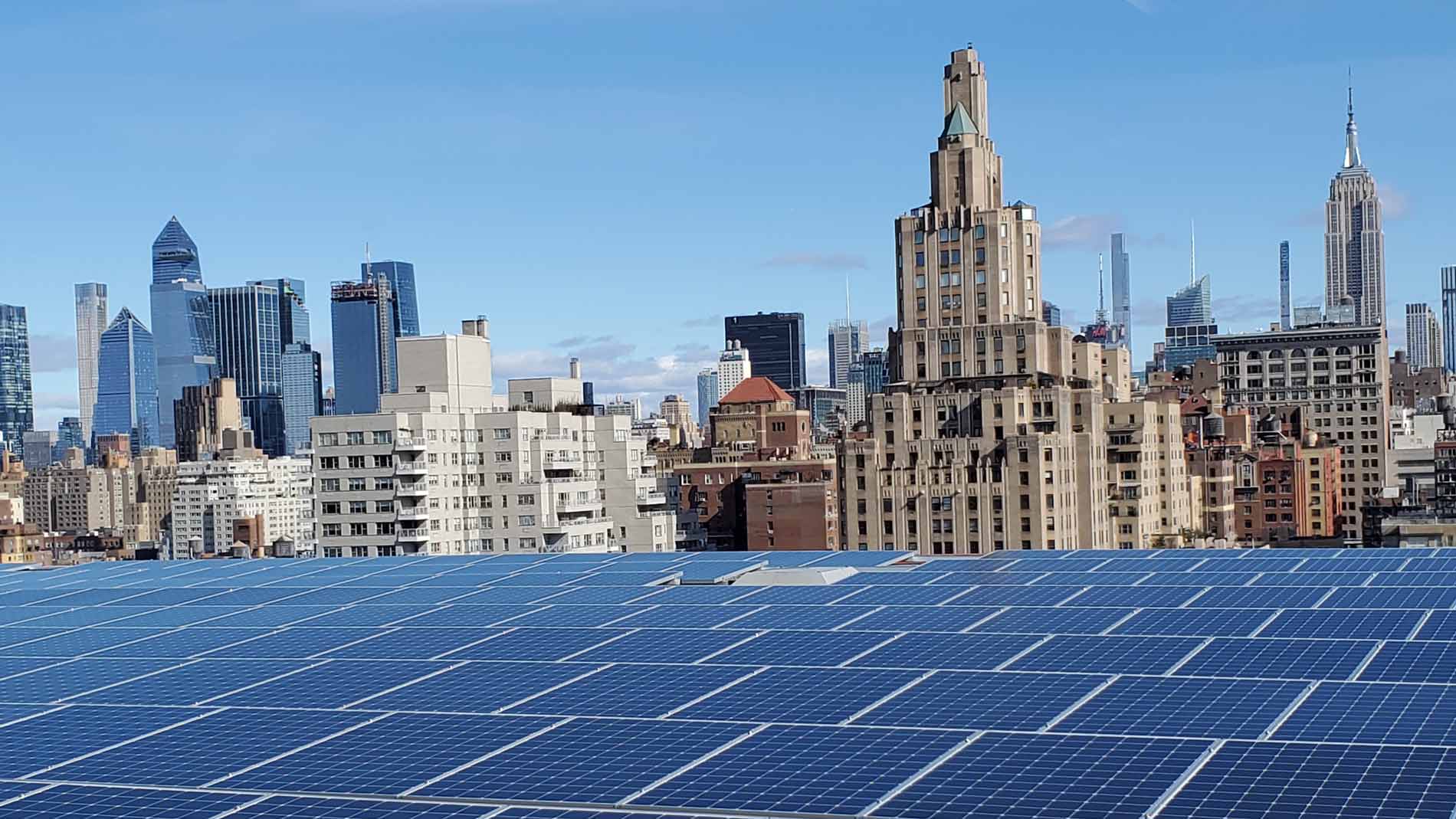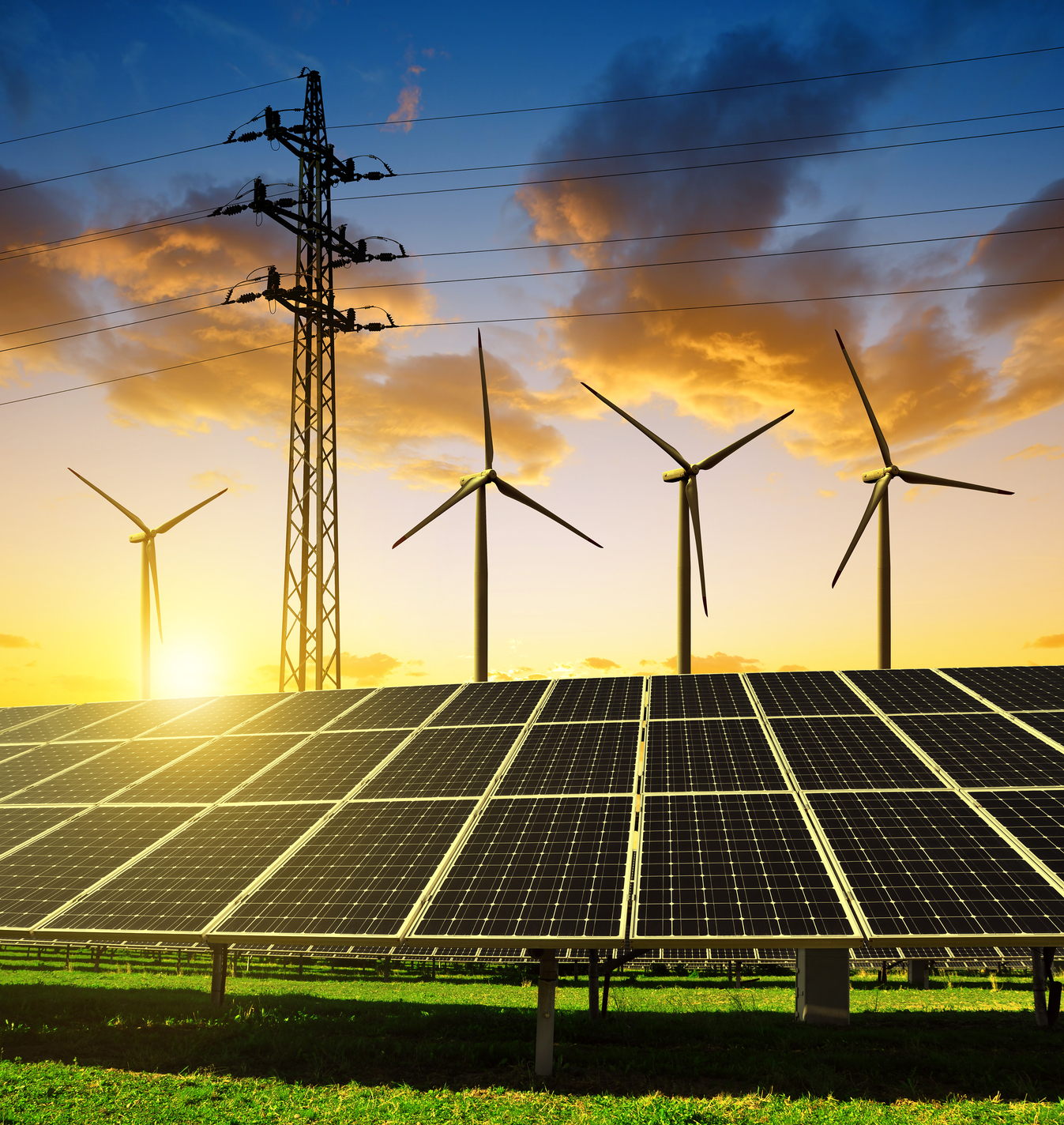Climate Jobs National Resource Center supports labor and advances an equitable, clean energy shift with a focus on union jobs and communities of color.
When Superstorm Sandy slammed New York City in 2012, a group of labor union leaders came to a conclusion.
“It became obvious climate change was real,” said Mike Fishman, who led the Service Employees International Union (SEIU) 32BJ local in New York and joined the group in the wake of the storm to chart a path forward for the city.
Fishman, Vincent Alvarez, New York City Central Labor Council President, and Gary LaBarbera, president of the New York City and New York State building and construction trade councils, were among union leaders who understood the need for proactive steps to advocate for robust renewable energy production that created high-quality union jobs.
Climate response and a clean energy transition could create jobs and a lifeline for workers and communities dependent on the energy sector—particularly for people in underinvested communities of color.
The group teamed with Cornell University to examine how climate response and a clean energy transition could create those jobs and a lifeline for workers and communities dependent on the energy sector—particularly for people in underinvested communities of color.
In 2017, they formed Climate Jobs New York (CJNY). The statewide coalition of unions representing 2.6 million workers advocates for climate policies that build a clean energy economy and create family-supporting jobs. It was the first of the country’s state-based, union-led coalitions advancing what they call a “climate jobs agenda.”
Now the Climate Jobs National Resource Center (CJNRC) supports the coalition and similar labor efforts around the U.S. It was established in 2020 inspired by key principles from CJNY. With eight state affiliates nationwide, CJNRC’s growing efforts support labor leaders and coalitions marshaling their organizing power and political leverage to advance policy, educate members, and build public support for an equitable clean energy transition.
Cornell bolstered that effort in 2023 by launching the Climate Jobs Institute, the first U.S. academic institution focused on worker-centered and equity-focused clean energy policy and research.
“There are plenty of groups setting goals—'100 percent clean energy by X date, shutting down coal and gas plants’—but no one was really talking about what we’ll build instead,” said Fishman, now executive director and president of CJNRC.
Climate Jobs New York came up with a 10-point plan “to build the future economy,” he said. The belief that the climate breakdown hits workers—particularly workers of color—"first and worst” is a central motivation to the coalition’s efforts.
The coalition has become a model for policy wins. It advocated for state legislation in 2019 that mandates zero emissions electricity generation by 2040 and drastic reductions in carbon emissions across the entire economy by 2050. CJNY then won strong labor and equity provisions in 2020, ensuring that clean energy projects pay workers a prevailing wage and create pathways to union careers in under-represented communities.

Union members, including Ian Cory of an International Brotherhood of Electrical Workers local, see their work as climate jobs. Photo Credit: Ian Cory.
Building Grassroots Support
Other climate jobs coalitions, inspired and supported by CJNRC, now exist in Illinois, Connecticut, Texas, Rhode Island, and Maine, with coalitions launching in Massachusetts and Washington in 2023. Labor leaders in Climate Jobs Illinois, the Illinois affiliate of CJNRC, used CJNRC’s educational and political resources to craft key components in, and advocate for, the state’s Climate & Equitable Jobs Act of 2021.
The Illinois law requires a transition to carbon-free electricity generation by 2045. And thanks to Climate Jobs Illinois, it includes labor standards, workforce development, and equity components that will create high-quality union jobs, spur clean energy development, and provide opportunities in communities that were historically reliant on coal mines and fossil fuel plants. The measure also includes provisions for project labor agreements and prevailing wage requirements, and it created training hubs and other resources that will help bring underrepresented communities into union careers and support workers in the transition.
“Energy generation is a tough topic for organized labor because so many of our members work in fossil fuel generation,” said Pat Devaney, secretary treasurer of the Illinois AFL-CIO and a Climate Jobs Illinois leader. The coalition utilized digital ad campaigns, targeted calls, and a lobby day that coalesced grassroots support which proved crucial to what he called “historic” provisions in the 2021 law.
"In Washington, the resource center has supported unions across the state in building a climate jobs platform to advance a proactive, worker-centered agenda on clean energy," said Mark Riker, executive secretary of the Washington State Building and Construction Trades Council.
April Sims, president of the AFL-CIO’s Washington State Labor Council, said the coalition hopes to “reframe the narrative and root that narrative in meaningful research—showing that this is where the meaningful opportunities are.”
On a national level, the Inflation Reduction Act of 2022 and Bipartisan Infrastructure Act of 2021 created robust incentives for renewable energy, clean fuels, and energy efficiency. Beyond the potential to generate millions of jobs, federal incentives in the laws include labor standards.
Debate around those laws demonstrated that emphasizing climate jobs as opportunities for all workers casts the topic of climate change in a constructive light, CJNRC’s Fishman said.
“We don’t need to have climate or jobs,” he said. “We can have climate and jobs and they can be good jobs.”
Diversity Through Apprenticeships
Rhode Island resident Sidney Jablonski is among the new generation of clean energy workers. She learned of an International Brotherhood of Electrical Workers’ (IBEW) apprenticeship program through an acquaintance at her grandmother’s church.
Since enrolling, Jablonski has been stringing wires between solar panels and inverters and performing electrical work on underground pads. Her union, IBEW Local 99, is an affiliate of the Climate Jobs RI coalition.
Jablonski wanted to be an electrician since high school, but worried that she would be unwelcome. To her surprise, Jablonski’s colleagues have been immensely supportive. She is thrilled to be working toward a job that helps the environment.
“It would be nice to see more girls” and women enter the clean energy and trades sector, she said. “Once you take the risk like I did, the less intimidating it is.”
Jablonski likely will find opportunities, given Rhode Island’s clean energy goals—driven in part by Climate Jobs RI.

Rhode Island resident, Sidney Jablonski, wanted to be an electrician for years. Now she works in solar energy as part of an IBEW apprenticeship. Photo Credit: Sidney Jablonski.
Union leaders see the climate crisis as an opportunity to build a diverse, inclusive workforce—especially in groups that have been historically under-represented—through union apprenticeship programs.
Climate Jobs Illinois, for example, is working with unions and community groups across the state to build out the Climate Works Pre-apprenticeship Program. Similar to other union-run pre-apprenticeship programs across the U.S., it will increase representation of Black and Latina/o/x workers in the clean energy workforce.
“This is like being at the beginning of the auto industry or the steel industry,” Fishman said. “We’re at the start of this historic transition. It’s critical we do this now.”
Between 2020 and 2023, MacArthur has provided $2 million to the Climate Jobs National Resource Center for general support.




